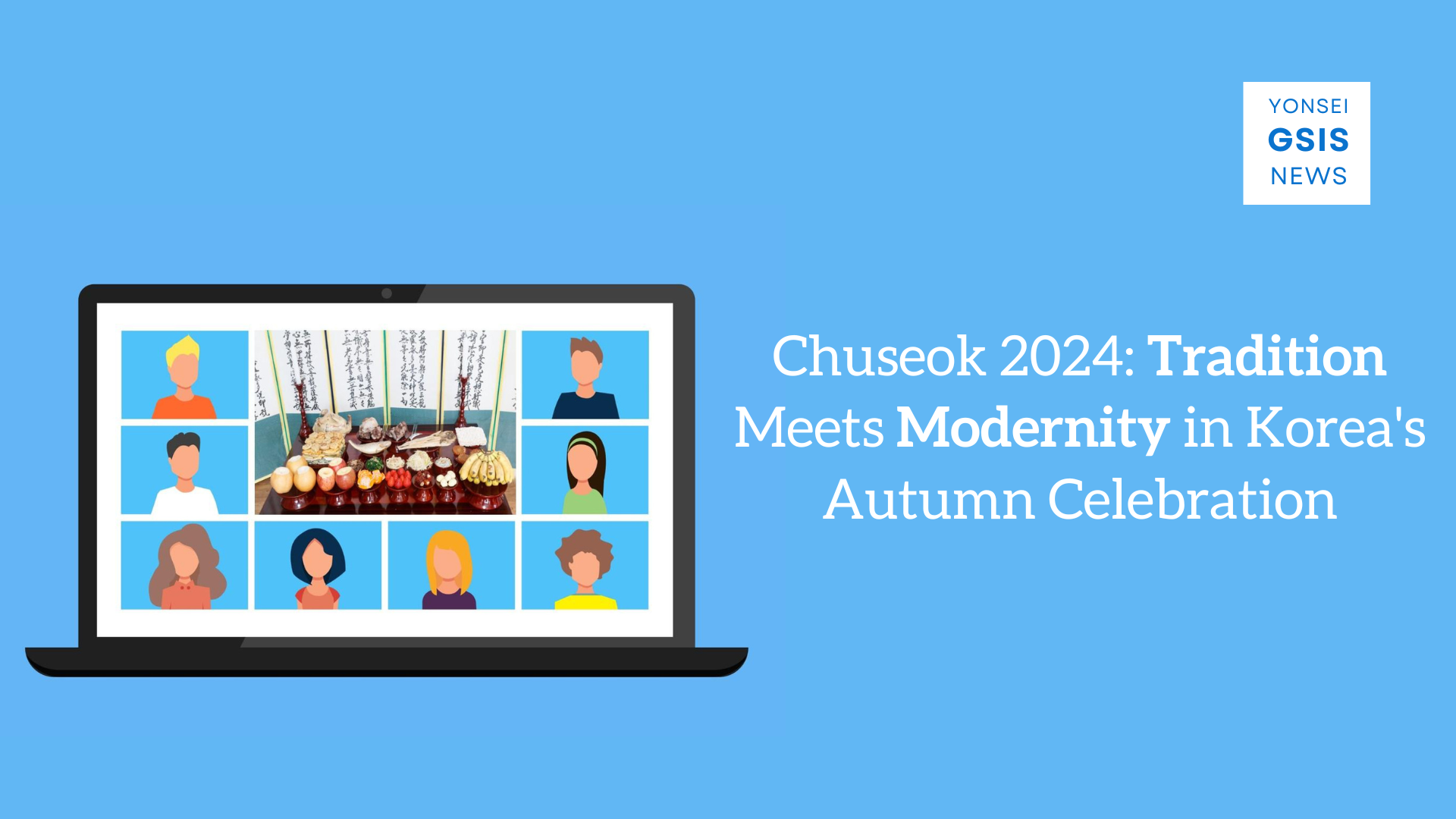- 제목
- [Newsletter] Chuseok 2024: Tradition Meets Modernity in Korea's Autumn Celebration
- 작성일
- 2024.09.30
- 작성자
- 국제학대학원
- 게시글 내용
-

By Jina Lee
Editor, GSIS Newsletter
As autumn settled over Korea, the country recently celebrated one of its biggest holidays—Chuseok. This year's Chuseok, which fell on September 17th, was particularly special as it provided a generous five-day holiday period that began right after the weekend. But how much do we know about this important celebration?
Chuseok(추석), often called 'Korean Thanksgiving,' is a harvest festival deeply rooted in history and unique traditions. It's one of Korea's two most significant holidays, alongside Seollal (설날, the Korean New Year). Chuseok traditionally falls on the 15th day of the 8th lunar month, serving as a unifying force that brings families together to honor their ancestors and express gratitude for a bountiful harvest.
During Chuseok, millions of Koreans participate in large annual migrations, traveling to their hometowns to reunite with family. Various traditional customs and rituals mark the holiday. Many families prepare and enjoy traditional foods such as Songpyeon(송편), Jeon(전), and Galbi-jjim(갈비찜). These dishes satisfy taste buds and carry deep cultural significance, offering a unique culinary experience.
Two important rituals observed during Chuseok are Charye(차례) and Seongmyo(성묘). Charye is a memorial ritual where food offerings are made to ancestors, while Seongmyo involves visiting and tidying ancestral graves. Additionally, exchanging gifts like fruit, Korean beef, or traditional sweets among relatives and acquaintances is common, reinforcing social bonds and expressing goodwill.
However, Chuseok reflects the ongoing changes in Korean society due to urbanization and individualization. Some people engage in 'Honchuseok' (혼추석), a trend of spending the holiday alone. In contrast, others conduct digital Charye, performing ancestral rites via video calls for family members who can not travel. These modern adaptations show how traditional customs evolved to fit contemporary lifestyles, providing a fascinating insight into cultural evolution.
For those in Korea during Chuseok, it is a unique opportunity to experience Korean culture. While many businesses are closed, numerous palaces, museums, and popular tourist sites offer free admission and special events, allowing visitors to immerse themselves in Korean traditions.
Those invited to a Korean home during Chuseok might have participated in the gift-giving custom. Interestingly, these gifts don't need to be expensive–even practical items like toothpaste sets or Spam gift sets are popular choices, showcasing the evolving nature of Chuseok traditions.
Reflecting on Chuseok celebrations, we are reminded of the holiday's ability to blend ancient traditions with modern practices. It continues to be a time for Koreans to reconnect with their roots, strengthen family bonds, and share in the abundance of the harvest season. Whether celebrated in traditional ways or with contemporary twists, Chuseok remains a vital part of Korean culture, offering insights into the country's rich heritage and its journey into the future.

